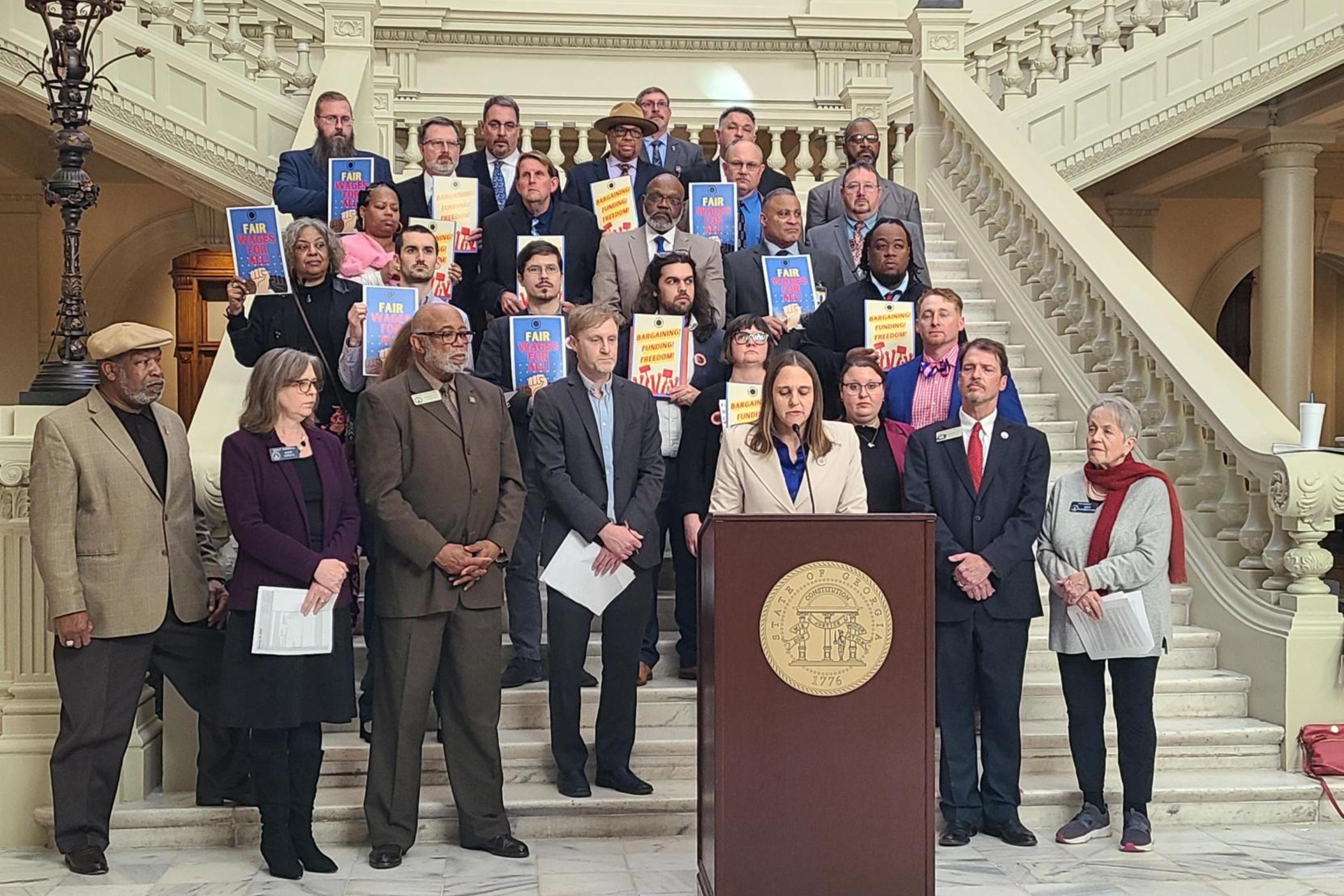Section Branding
Header Content
Georgia campus workers' union lobbies state legislators for better job conditions
Primary Content
Members of the United Campus Workers of Georgia gathered at the state capitol this week to share a list of worker demands across the university system. They include policy changes and better treatment for employees.
The three key issues the group wants addressed are cuts to higher education funding, collective bargaining rights, and academic freedom.
Union members are lobbying lawmakers to pass Senate Bill 166, allowing public employees to bargain on wages, hours and employment conditions.
Kennesaw State University professor Eric Castater said employee negotiations affect job retention.
“Stated another way, the lack of public sector bargaining rights in the state of Georgia means less desirable public service jobs, a demoralized workforce and chronic public sector labor shortages,” he said.
Georgia, North Carolina, Southa Carolina and Texas are the only states that don’t allow collective bargaining for public sector workers. During the recession in 2008, state funding dropped from around 65% to below 50% for the first time. That funding hasn’t been restored.
UCWGA co-president Jill Penn said those budget cuts aren’t just affecting the faculty and staff.
“State underfunding of higher education forces students to pay more for an education of a quality less than what we are capable of delivering, and below what students deserve,” Penn said.
Union members are also supporting SB 25, which would raise the state's minimum wage to $15 per hour.


